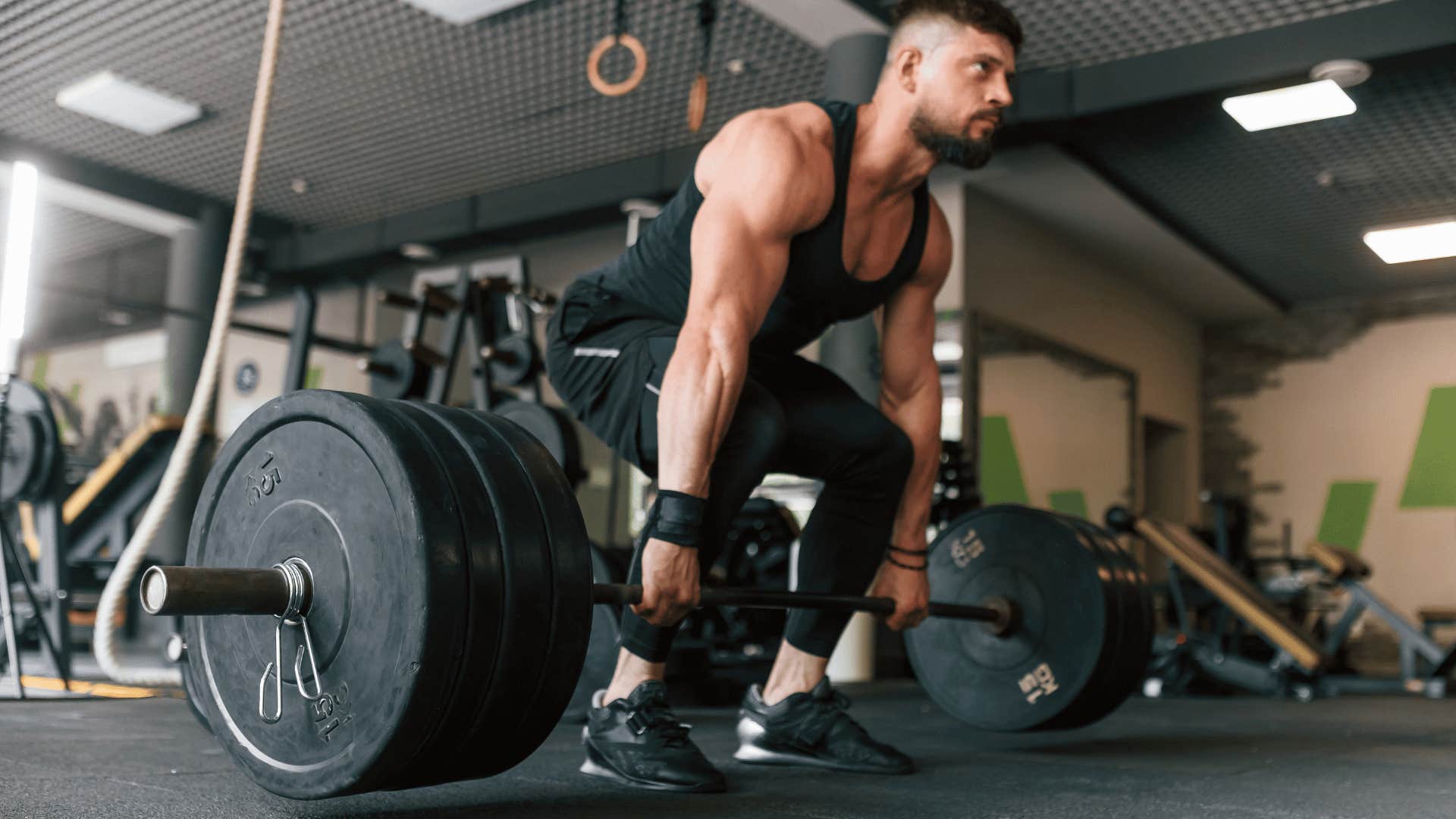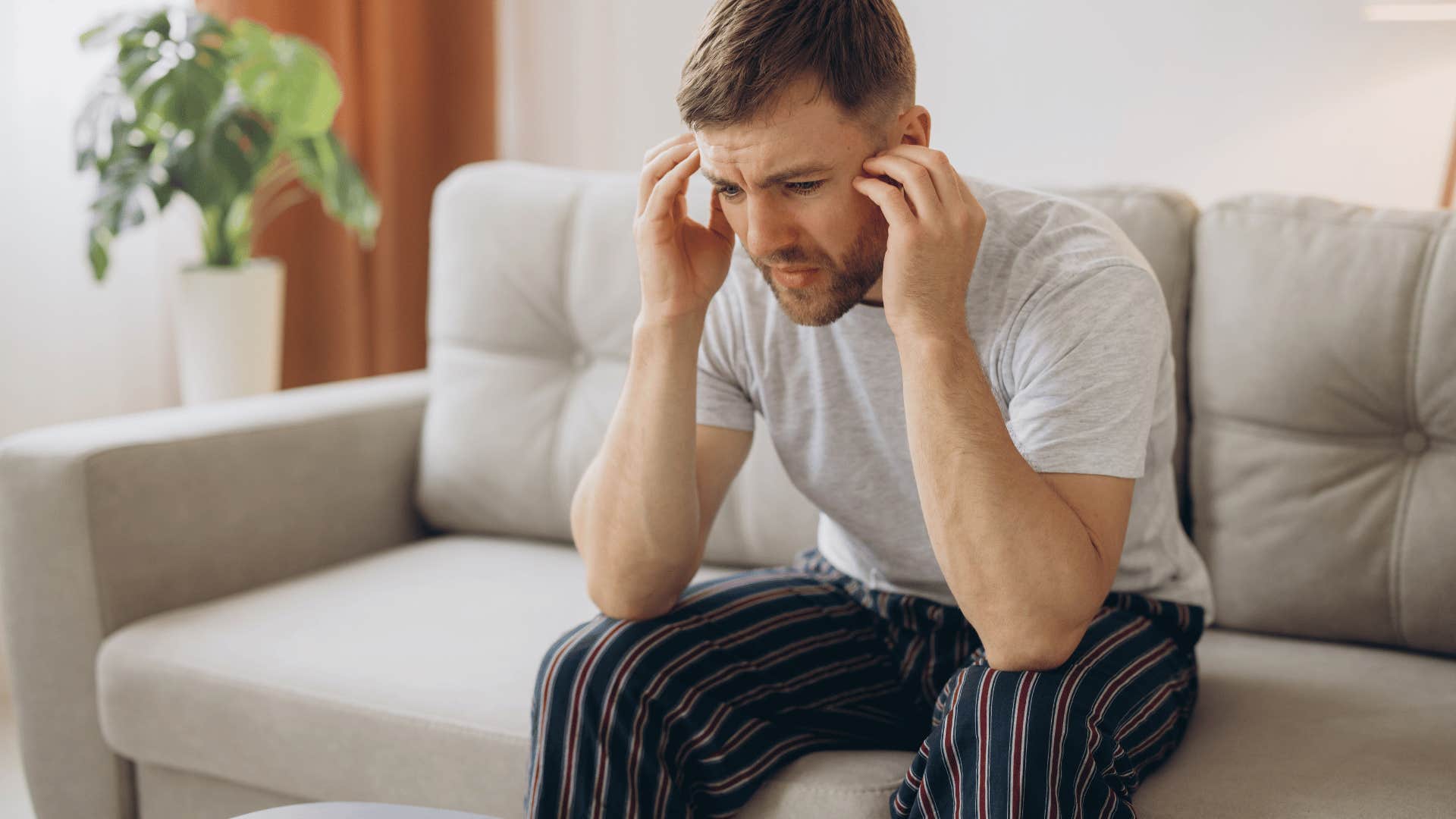5 Reasons Millennial Men Have Complicated Relationships With Their Bodies
Millennial men need to embrace their authentic selves to combat the unrealistic standards they've been fed for years.
 sandsun | Canva
sandsun | Canva One in three men feels anxious about their body. This isn’t surprising considering how much emphasis our culture puts on appearance. Millennial men, in particular, face a unique set of pressures that shape how they see themselves. Everything from media portrayals to evolving ideas about masculinity plays a role.
Here are five reasons Millennial men have a complicated relationship with their body:
1. Unrealistic body standards
 fizkes / Shutterstock
fizkes / Shutterstock
Chasing the Instagram ideal. Social media and pop culture constantly showcase “ideal” male bodies. These images feature lean, muscular men. This creates unrealistic expectations.
Millennial men feel pressure to curate the perfect online persona, complete with an impressive physique. Influencers and celebrities add to this pressure by promoting fitness products and lifestyles difficult to attain.
2. Obsession with fitness
 Standret / Shutterstock
Standret / Shutterstock
Many millennial men blur the lines between fitness and health. They strive for extreme fitness goals, pushing their bodies to the limit. Gym culture, intense fitness challenges, and the growing use of supplements all contribute to this problem.
This intense focus on how their bodies look harms overall well-being. They may experience injuries, burnout, or even disordered eating. Men who are excessively focused on fitness can experience significant mental health issues like depression, anxiety, and disordered eating behaviors.
A 2016 study found this obsession is often fueled by societal pressure to conform to a muscular ideal portrayed in media and popular culture. Young men, particularly those with pre-existing body image concerns or low self-esteem, may be more susceptible to developing an unhealthy obsession with fitness.
3. Stereotypical ideas about masculinity
 Anatoliy Cherkas / Shutterstock
Anatoliy Cherkas / Shutterstock
Traditional ideas about masculinity are changing. The old “hyper-masculine” ideal is fading fast. Men have space to show vulnerability and express a wide range of emotions.
The body positivity movement encourages self-acceptance, but its impact on men differs from its impact on women. Men still face pressure to appear strong and stoic, which makes it difficult to talk about their body image struggles.
4. Aging and appearance anxiety
 Alan Budman / Shutterstock
Alan Budman / Shutterstock
As millennial men get older, many worry about changes in their bodies. Hair loss, weight gain, and decreased muscle mass are major concerns.
These changes trigger fears about appearing “less manly.” This explains the rise in popularity of male skincare and anti-aging products. Men are looking for ways to combat the visible signs of aging. Men who are excessively focused on fitness can experience significant mental health issues like depression, anxiety, and disordered eating behaviors.
A 2016 study found this obsession is often fueled by societal pressure to conform to a muscular ideal portrayed in media and popular culture. Young men, particularly those with pre-existing body image concerns or low self-esteem, may be more susceptible to developing an unhealthy obsession with fitness.
5. Mental health & the connection to ebody image
 Diego Cervo / Shutterstock
Diego Cervo / Shutterstock
Mental health plays a major role in how men perceive their bodies. Anxiety fuels negative body image. Unfortunately, many men hesitate to seek help for mental health issues because of social stigma.
This creates a harmful cycle. Men have to understand the connection between body image and mental health and well-being. A holistic approach that addresses both is crucial.
Gregory Bourne is an art school dropout turned content creator. As a premium ghostwriter who specializes in microcopy. But I'm also a pop culture critic and a content creator who helps brands find their voice. I'm a writer, a storyteller, and a social justice activist.

